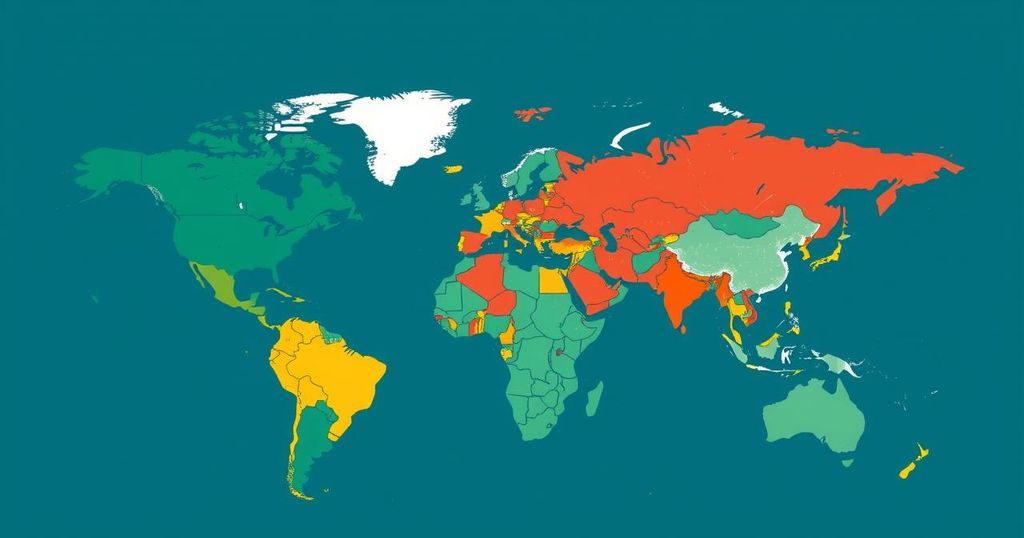A global study indicated that a significant portion of individuals, particularly those affected by climate change, lack an understanding of the term “climate justice.” Conducted across 11 countries, the study revealed that while many recognized social and economic injustices related to climate change, two-thirds reported unfamiliarity with the concept. Despite this, the majority expressed support for climate justice principles, highlighting an opportunity for advocates to leverage this awareness in policy discussions.
A recent global study has underscored a significant gap in public understanding regarding the concept of climate justice among individuals in 11 countries heavily impacted by climate change. Conducted by researchers from the University of Nottingham’s School of Psychology, the study assessed the awareness and comprehension of climate justice among 5,627 adults across diverse regions, including Australia, Brazil, Germany, India, Japan, the Netherlands, Nigeria, the Philippines, the United Arab Emirates, the United Kingdom, and the United States. This research is notable as it represents the first investigation into public knowledge of climate change and associated justice concepts outside of North America and Europe, and the findings were disseminated in the esteemed journal, Nature Climate Change. The data revealed an alarming trend: two-thirds of the participants had never encountered the term “climate justice.” Nevertheless, there was a broad understanding of the social, historical, and economic inequities exacerbated by climate change. For instance, a striking 78% of respondents acknowledged that individuals from poorer backgrounds experience the most severe consequences of climate change, while similarly, 78% concurred that those from the most affected communities should have a more substantial voice in climate-related decisions. Furthermore, 70% recognized capitalism and colonialism as core elements contributing to the ongoing climate crisis. These beliefs were positively correlated with participation in climate activism and support for equitable climate policies. The essence of climate justice involves recognizing that the impacts of climate change are disproportionately felt across different segments of society. It further emphasizes that the groups most affected by climate change often lack sufficient representation in the processes that govern climatic responses, which perpetuates the disenfranchisement of marginalized communities. Dr. Charles Ogunbode, the leading author of the study, articulated the importance of considering climate justice in climate response initiatives, urging a shift from viewing impacted communities as mere subjects to being proactive contributors to climate discourse. The researchers have expressed hope that by revealing the widespread endorsement of climate justice principles globally, their findings will empower climate advocates to influence policymakers in delivering more equitable solutions to the climate crisis.
The concept of climate justice is a crucial framework utilized in understanding and addressing the inequalities inherent in climate change, which is often experienced unequally across different populations. Importantly, this study highlights the disconnect between widespread acknowledgement of these injustices and the specific understanding of climate justice as a term. The research aims to bridge this gap in knowledge by assessing various global populations, particularly those in nations that are most vulnerable to the impacts of climate change. Given the absence of understanding regarding climate justice among those affected, this study serves as a significant contribution to climate advocacy and policy formulation.
In conclusion, the international study reveals a critical lack of awareness regarding the term “climate justice” among individuals, including those facing the harshest impacts of climate change. Despite this, there is a substantial recognition of the underlying social and economic inequalities linked to the climate crisis. The findings indicate that, even in the absence of familiarity with the term, there is strong support for the principles of climate justice. This highlights a potential pathway for climate advocates to harness this support to influence policy and promote fairer climate action.
Original Source: phys.org






